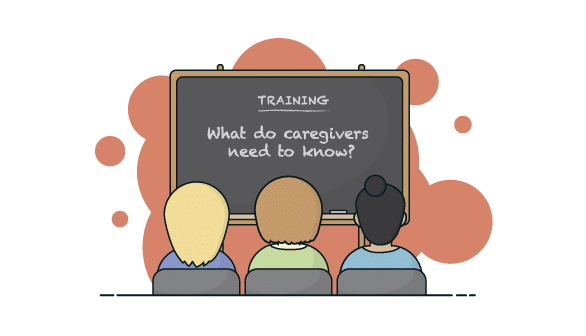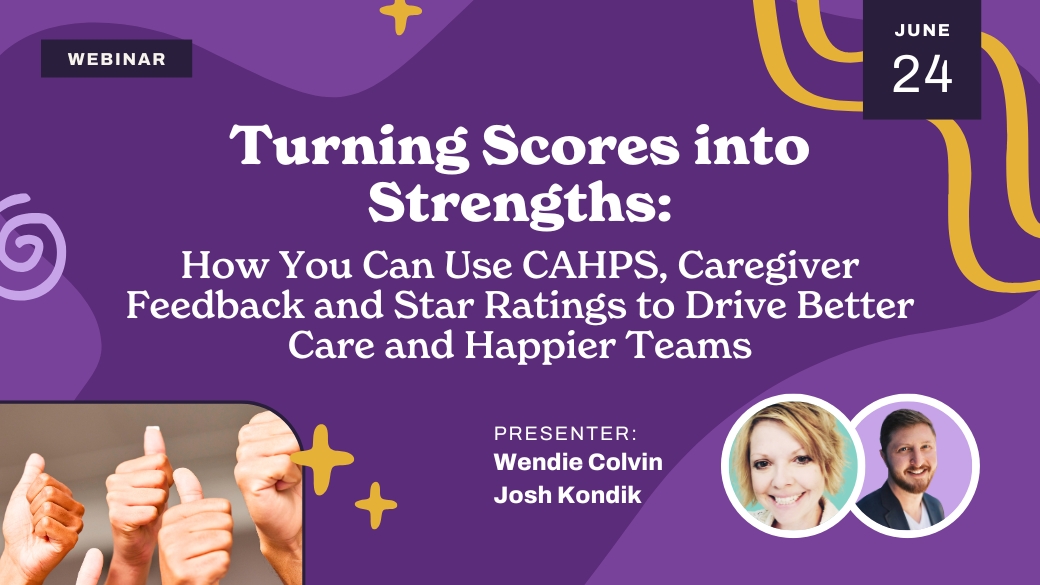What Do Caregivers Need to Know? Ideas for Training to Provide Your Caregivers

For an updated, expanded version of this article see The 5-Minute Guide to Better Caregiver Training.
Every month, Activated Insights associates survey more than 15,000 clients and caregivers over the phone to learn how their agencies can improve their quality of care and employment. In these conversations, we often hear comments from clients like this recent one: “I needed a caregiver who was trained and capable of lifting me, but the home care agency sent me a caregiver who didn’t know how to do it.”
Clients can get frustrated if caregivers don’t know how to properly care for their needs. And caregivers get frustrated, too. Being unable to, or uncomfortable performing certain tasks a client expects and consequently having to deal with a disappointed client is an inconvenience at best and a safety hazard at worst.
Training your caregivers how to perform job-related tasks empowers them. It will help them take better care of your clients. It also shows them that you care about them and about your clients overall satisfaction. As a result of caregiver training, you will be able to send prepared, confident caregivers into your clients’ homes, resulting in more satisfied, happy clients.
Here are some ideas for caregiver training sessions you may want to plan throughout the year:
As you plan your caregiver training sessions this year, here is some advice from Aaron Marcum, CEO of Activated Insights, and a former owner of a successful home care business:
1. Know your state licensing regulations and make sure caregivers clearly understand the tasks they can or can’t perform, due to licensing and certification regulations. Plan your training based on those regulations.
2. Call on various community professionals to assist with your training. A community health professional could help train caregivers on proper transfer methods. A worker’s compensation professional could assist with on-the-job safety training. A hospice worker could help train caregivers on dealing with death and dying. And don’t forget to have your most experienced, qualified caregivers assist with training. They can share valuable insight gained from experience with clients.
3. Offer the same training session more than once, at various times on various days. This way, caregivers will be able to attend at a time that works best for them.
4. Pay your caregivers for attending training. Caregivers will not be motivated to attend unpaid training. (Watch for an upcoming blog on other incentives to offer caregivers who attend training.)
Training caregivers needs to be one of your top business priorities. They are on the front line of your business, interacting the most with clients. Your caregivers need to be prepared and confident to perform the tasks required. Your clients and caregivers will all benefit from the training, which in turn benefits your business.
Since our merger with In the Know Caregiver Training, we’re proud to offer a library of more than 180 courses on caregiving and clinical topics. In this article we’ve linked to the PDF trainings for specific topics; you can also learn about our online learning platform here.










